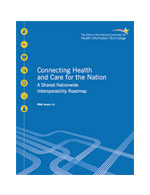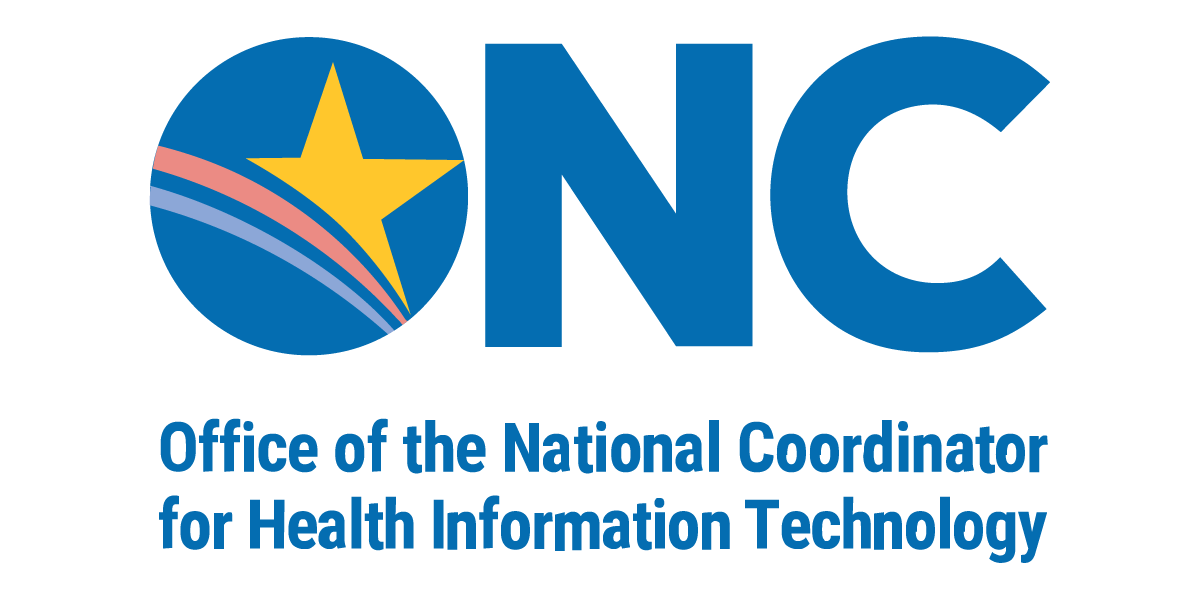 ONC accepted public comments on Connecting Health and Care for the Nation: A Shared Nationwide Interoperability Roadmap Draft Version 1.0. The comment period ended on April 3, 2015.
ONC accepted public comments on Connecting Health and Care for the Nation: A Shared Nationwide Interoperability Roadmap Draft Version 1.0. The comment period ended on April 3, 2015.
The draft Roadmap proposes critical actions that need to be taken by both private and public stakeholders to advance the nation towards a more connected, interoperable health IT infrastructure and was drafted by ONC based on input from private and public stakeholders. The draft Roadmap outlines the critical actions for different stakeholder groups necessary to help achieve an interoperable health IT ecosystem.



Interoperability Comments
Please see my uploaded comments document.
Thanks!
Terry Bequette
interoperability_roadmap_response_-_tbequette.docxAmerican Academy of Ophthalmology
Please accept the attached comments on behalf of the American Academy of Ophthalmology. For comments or questions, please contact Rebecca Hancock at rhancock@aaodc.org.
aao-onc-interoperability-roadmap-comments-4-3-15.pdfDatabound Solutions, Inc.
Please see the attached document.
databound_comments_to_nationwide_interoperability_roadmap.pdfCA Health and Human Services
CalOHII appreciates the opportunity to comment. Please see attached letter.
calohii_comments_onc_nationwide_interoperability_roadmap_version_1.pdfAetna, Inc.
Attached please find Aetna, Inc.'s comments on the Interoperability Roadmap.
2015-04-03_-_aet_onc_interoperability_roadmap_comment_letter_v10_final.pdfInterprofessional Systems, Ltd.
I have reviewed NATIONWIDE INTEROPERABILITY ROADMAP – DRAFT VERSION 1.0, and the Quick Reference Factsheet (both of which I will refer to hereafter as the “Interoperability Roadmap” ), and would like to provide comments. In addition, I have attached two files that provide background and additional details for the comments provided here.
The “Interoperabiity Roadmap” appears to be unnecessarily and complicated, and its goals more aspirational than achievable, unless a radically different approach is employed.
Although comment regarding problems with patient safety, security and privacy, widespread physician dissatisfaction, and other issues relating to the current state of EHRs has not been requested, I mention these issues because I believe that in large part they have a similar root cause as does the poor progress being made with regard to interoperability.
In my view, there are two things that are easily achievable (technically, but perhaps not politically), and that could bring about the desired result (namely interoperability and a nationwide health learning system) more simply, and more cost-effectively for the taxpayers.
First, an open source EHR (VistA, e.g.) should be made available to any provider (physician, group practice, hospital, public health agency, e.g.) at nominal cost.
Second, the above-mentioned open source EHR (there could be several versions for adaptation in different environments, but all with the same architecture) needs to be licensed so as to optimize innovation by the actual users, and patients. Of course, a properly constituted governing authority (such as was contemplated in HR 6898 of 2008, referred to in the attached documents) would be (as would open source code) an essential part of such an environment.
The widespread use on an EHR with open source code would enable, and in fact strongly incentivize (if not require for survival) proprietary vendors (not only of EHRs, but of medical device makers) to make their products interoperable.
the_politics_of_the_ehr_why_were_not_where_we_want_to_be_and_what_we_need_to_do_to_get_there_open_health_news.pdfInterprofessional Systems, Ltd.
A second file is attached, an intended to accompany the previous comments.
Resilient Network Systems
See uploaded comments file.
rns-comments-upon-onc-draft-roadmap.txtImprivata
General Comments to "Connecting Health and Care for the Nation, A Shared Nationwide Interoperability Roadmap; DRAFT Version 1.0"
We applaud the ONC for developing the interoperability roadmap. Over the last few years, billions of dollars have been spent in the development of our electronic health records system. Until we have a guide in place, we will not be able to fully realize the potential of this revolution. We agree with the ONC that interoperability of healthcare IT systems and the secure, efficient sharing of electronic health information are important to improving patient care and reducing healthcare costs. The ONC’s “Roadmap” provides the vision and framework to realize this potential. We are grateful for the opportunity to provide insight and comment.
As a general matter, Imprivata strongly recommends that the ONC continues to consider the importance of security and data protection, as critical to the success of interoperability. The bi-directional flow of information between healthcare organizations and, in time, between patients and care providers relies on the integrity of health information. This can only be accomplished if the proper security policies, process, and technology measures are integrated at each step in the process – and if those security measures do not interrupt clinical workflows.
For interoperability to succeed on a broad scale, the entire healthcare community—including patients, care providers, hospital administration, policymakers, payers, and technology vendors—must be assured of the authenticity and validity of the information itself, as well as the identity of the individuals accessing and sharing the data.
imprivata_comments_to_onc_ntwd_interop_rdmp.docxPatientLink Enterprises, Inc.
C2. Providers and technology developers supporting individual empowerment
Call to action: Providers and technology developers should provide a majority of individuals with the ability to send and receive their health information and make decisions with the providers of their choice, including but not limited to their existing care team based on their preferences
COMMENT:
To enable patients to send their health information to a provider of their choice, barriers must be removed which currently prohibit patients from sending data to their provider. Enabling Bidirectional communication using Blue Button should be mandatory in EHR technology.